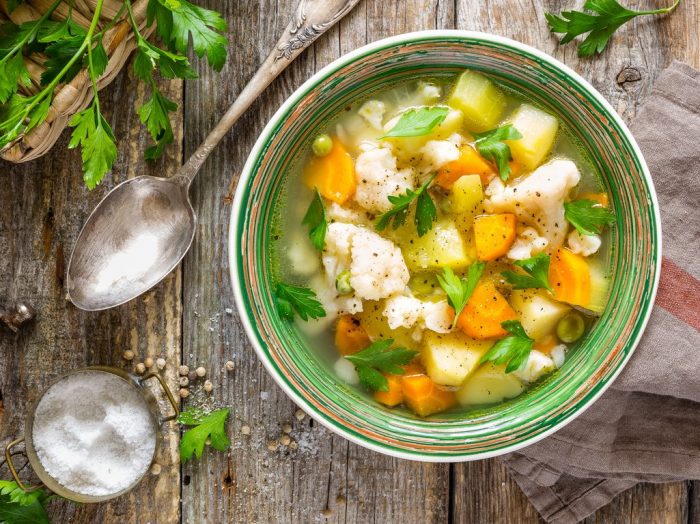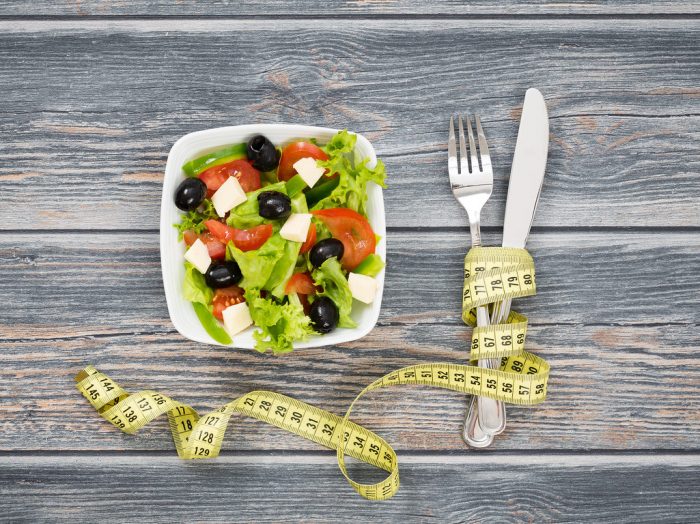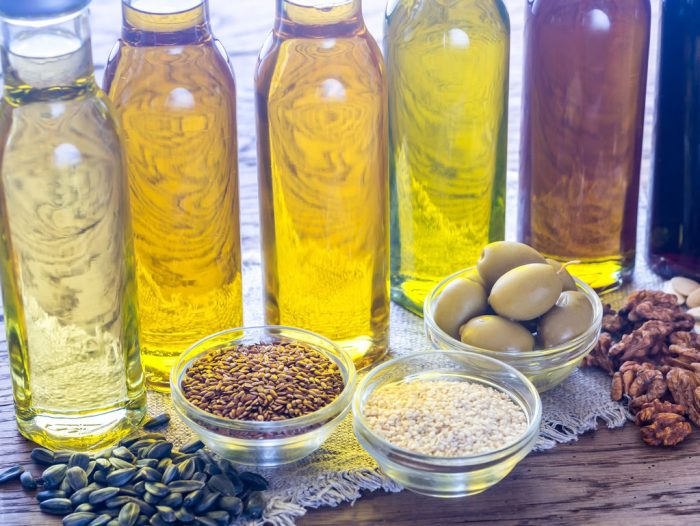Homemade soups are ones of the best things you can make in your kitchen when the cold weather steps in – they warm you up from the inside out and provide a good dose of vitamins and minerals to keep your body fortified for winter. So, get cozy and enjoy your delicious warming soup!
Fall is officially the soup season. When is getting cold outside, we need nourishing, fulfilling, and warming foods. And for all these needs, a good soup may be the right answer. But don’t fool yourself with those instant soups, it’s true they come in handy, but they’re quite unhealthy and not a long-term solution (not to mention that if you want to be more cautious with your diet, instant soups can leave you with a bad feeling that you’re not taking good care of yourself). So, opt for hearty homemade soups instead. If you learn some basics, they are not difficult to make. Get inspired by our homemade soups, then pay attention to the simple tips below.
5 simple tips for homemade soup
1. Keep your seasonings simple
Try not to use bouillon cubes in your soup! It can give an artificial taste and you don’t want that. Also, don’t throw in the boiling liquid all the spices and herbs you have on hand. Go for simple seasonings. Use salt and pepper, but be stingy with other herbs and condiments. Use no more than 2 or 3 other tastes like paprika, basil, or parsley.
Follow your recipe, but if you want to explore new combos, choose wisely between allspice, ginger, lemon zest, bay leaves, cayenne pepper, coriander, herbs de Provence, tarragon, turmeric, or thyme.
If you have the possibility, use fresh herbs for flavoring your homemade soups. Also, it’s best to add them to the top of the dish at the very end of the cooking time for the best flavor.
2. Use homemade stock
Chicken or vegetable stock is something you need for a lot of tasty recipes, but you really don’t want to buy the boxed version. You can just add water to your soups, but when you don’t have time for a good simmering so they get enough flavor from the vegetables, you can use stock.
‘Yes’, you may say, ‘but making stock at home also takes time’. It’s true, but you can make it ahead and then freeze it until you need it. Then things will be much easier – just pull out a stock bag from the freezer and add it to your soup, alongside fresh vegetables or legumes, cooked meat or noodles. You can always choose between vegetable stock or chicken stock.
3. Fresh vegetables are better than frozen
Frozen vegetables keep for a long time, they’re cost-effective, and they’re always there when you need them. But to make a good soup, you need stronger flavors. Use fresh vegetables like onion, garlic, celery, bell pepper, and carrots. They add much flavor to your homemade soups than the frozen ones. If you want to enrich their taste, you can sautée them in oil or butter before adding liquid and simmering the soup. If you decide to do that, be sure they’re cooked until softened before moving on to the next step.
4. Consider the cooking time
There are soft vegetables and there are hard vegetables. For this reason, some of them cook faster than the others. And, since you want perfectly cooked vegetables in your soup, you should consider each ingredient’s cooking time.
Zucchini, kale, frozen peas and broccoli cook way faster than potatoes, celery, and carrots. When the pieces are cut to bite-sized, even the firmest vegetables like crunchy celery don’t need more than thirty minutes to be ready to eat. Add the vegetables gradually so they finish cooking around the same time.
Also, when you make noodle soup, don’t cook noodles separately. Add the noodles as the final addition, and cook until tender, allowing the noodles to absorb the flavor of the soup.
5. Simmering is best than boiling
This one may be the most important secret for best homemade soups. Once the soup has come to a boil, reduce to a simmer and make sure that it stays there. No matter how hurried you are, boiling is not the best option for soups, because cooking vegetables too vigorously will make them mushy. Also, the meat may toughen. Simmering is a more delicate way of cooking, and it’s best for soups. For example, we simmered this soup for 30 minutes.
Extra tip: You can make a big pot of homemade vegetable soup and have it for dinner throughout the whole week.






